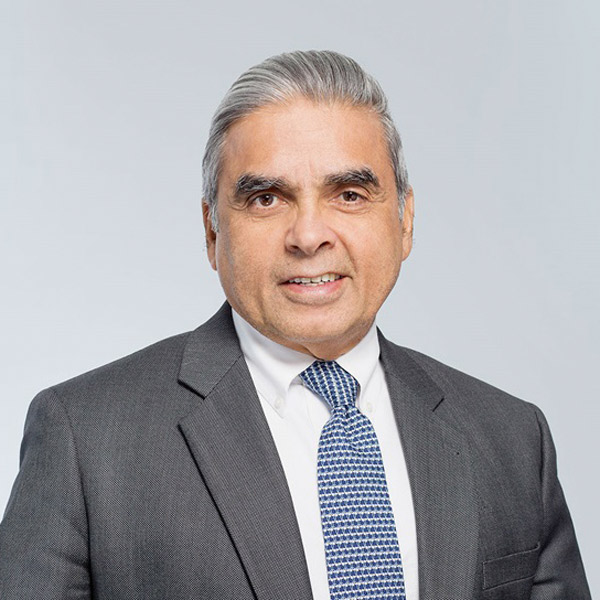Kishore Mahbubani is Dean and Professor in the Practice of Public Policy of the Lee Kuan Yew School of Public Policy at the National University of Singapore. He previously served for 33 years in Singapore's diplomatic service and is recognised as an expert on Asian and world affairs. From 1971 to 2004 he served in the Singaporean Foreign Services, becoming Singapore's Permanent Representative to the United Nations. In that role he served as President of the United Nations Security Council in January 2001 and May 2002.
In the world of ideas, Prof Mahbubani has spoken and published globally. His articles have appeared in a wide range of journals and newspapers, including Foreign Affairs, Foreign Policy, the Washington Quarterly, Survival, American Interest, the National Interest, Time, Newsweek, the Financial Times and New York Times. He has also been profiled in the Economist and in Time Magazine. He is the author of Can Asians Think? (published and translated in Singapore, Canada, US, Mexico, India, China Myanmar, Turkey and Malaysia), Beyond The Age Of Innocence: Rebuilding Trust between America and the World (published and translated in the US and China), and The New Asian Hemisphere: The Irresistible Shift of Global Power to the East (published and translated in the US, France, Germany, the Netherlands, Egypt, China, Korea, Japan, Indonesia, Italy, Taiwan and Vietnam). His latest books are The Great Convergence: Asia, The West and the Logic of One World (published and translated in the US, the Netherlands and China) and Can Singapore Survive. The Great Convergence was selected by the Financial Times as one of the best books of 2013 and long listed for the 2014 Lionel Gelber Prize. He is a widely recognised and admired keynote speaker all over the world.
Prof Mahbubani was awarded the President’s Scholarship in 1967. He graduated with a First Class honours degree in Philosophy from the University of Singapore in 1971. From Dalhousie University, Canada, he received a Masters degree in Philosophy in 1976 and an honorary doctorate in 1995. He spent a year as a fellow at the Center for International Affairs at Harvard University from 1991 to 1992.
In the world of ideas, Prof Mahbubani has spoken and published globally. His articles have appeared in a wide range of journals and newspapers, including Foreign Affairs, Foreign Policy, the Washington Quarterly, Survival, American Interest, the National Interest, Time, Newsweek, the Financial Times and New York Times. He has also been profiled in the Economist and in Time Magazine. He is the author of Can Asians Think? (published and translated in Singapore, Canada, US, Mexico, India, China Myanmar, Turkey and Malaysia), Beyond The Age Of Innocence: Rebuilding Trust between America and the World (published and translated in the US and China), and The New Asian Hemisphere: The Irresistible Shift of Global Power to the East (published and translated in the US, France, Germany, the Netherlands, Egypt, China, Korea, Japan, Indonesia, Italy, Taiwan and Vietnam). His latest books are The Great Convergence: Asia, The West and the Logic of One World (published and translated in the US, the Netherlands and China) and Can Singapore Survive. The Great Convergence was selected by the Financial Times as one of the best books of 2013 and long listed for the 2014 Lionel Gelber Prize. He is a widely recognised and admired keynote speaker all over the world.
Prof Mahbubani was awarded the President’s Scholarship in 1967. He graduated with a First Class honours degree in Philosophy from the University of Singapore in 1971. From Dalhousie University, Canada, he received a Masters degree in Philosophy in 1976 and an honorary doctorate in 1995. He spent a year as a fellow at the Center for International Affairs at Harvard University from 1991 to 1992.

